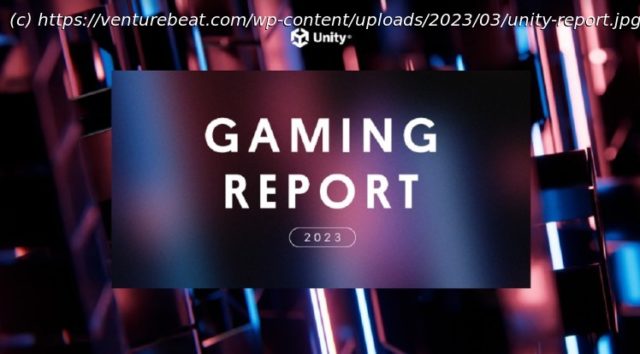We’re thrilled to announce the return of GamesBeat Next, hosted in San Francisco this October, where we will explore the theme of « Playing the Edge. » Apply to speak here and learn more about sponsorship opportunities here. At the event, we will also announce 25 top game startups as the 2024 Game Changers. Apply or nominate today! A year […]
A year after Unity raised prices for enterprise and professional versions of its game engine, Unity added a new charge for for smaller developers who meet thresholds for revenue and installs.
Starting on January 1, 2024, Unity will charge a Unity Runtime Fee for any game that surpasses a revenue and lifetime install in the preceding 12 months. Normally, Unity Personal usage is free, and subscribers for Unity Pro pay $399 per seat.
But under the changes announced today, Unity Personal and Unity Pro users will pay fees if they hit $200,000 in revenue in a year and 200,000 lifetime installs. For anywhere from one to a million installs, those users will pay 20 cents per install.
“It’s a price increase. It’s a business model change,” acknowledged Marc Whitten, Unity Create president, in an interview with GamesBeat. “From our perspective, we’re working on ensuring that there’s an accurate exchange of value between Unity and its customers. But with that said, this price increase doesn’t impact the significant majority of our customers.”Developer reactions
As you might expect, this did not go over well with developers, judging by social media responses. Brandon Sheffield, an indie game developer at Necrosoft and contributor to Game Developer, wrote an article about the fees and other problems with Unity entitled, “The Death of Unity.” As that story and many other posts on social media reflect, skepticism is running high about Unity’s intentions and whether the impact is as small as the company says it will be when it comes to affecting small game developers.
“My game company Necrosoft has used Unity for every commercial project it has ever made,” Sheffield wrote. “But now I can say, unequivocally, if you’re starting a new game project, do not use Unity. If you started a project 4 months ago, it’s worth switching to something else. Unity is quite simply not a company to be trusted.”
In a message on social media, TinyBuild CEO Alex Nichiporchik said, “There’s not a single dev out there that would look at the announcement and think it was a good idea. We often factor in engine fees when making decisions on projects, and at face value the math goes towards Unreal Engine if we factor in free installs of demos, free to try versions on iOS, and playtests on Steam. I find it hard to believe this will actually go through.”
And Susan Cummings, CEO of Tiny Rebel Games, said in a post, “It’s a terrible move. I’ve been a partner of Unity for as long as I can remember and was completely blindsided by this announcement. It’s going to be yet another hardship for game developers – esp indies, esp those in free to play who are already struggling with severe UA challenges and costs. Imagine having to pay on a user that doesn’t monetize?”
She added, “I get that times are tight but a revenue share like Epic’s would surely be the way to address. Especially considering that we already pay handsomely per seat for our licenses. I don’t understand why this move was made so abruptly and surely consultation with game developers would have been the prudent move, first? I think they have no choice but to revert on this — developers are going to flee en masse to Epic and other middleware for future games.
Home
United States
USA — software Unity adds fee for installs for successful small devs, triggering a backlash






